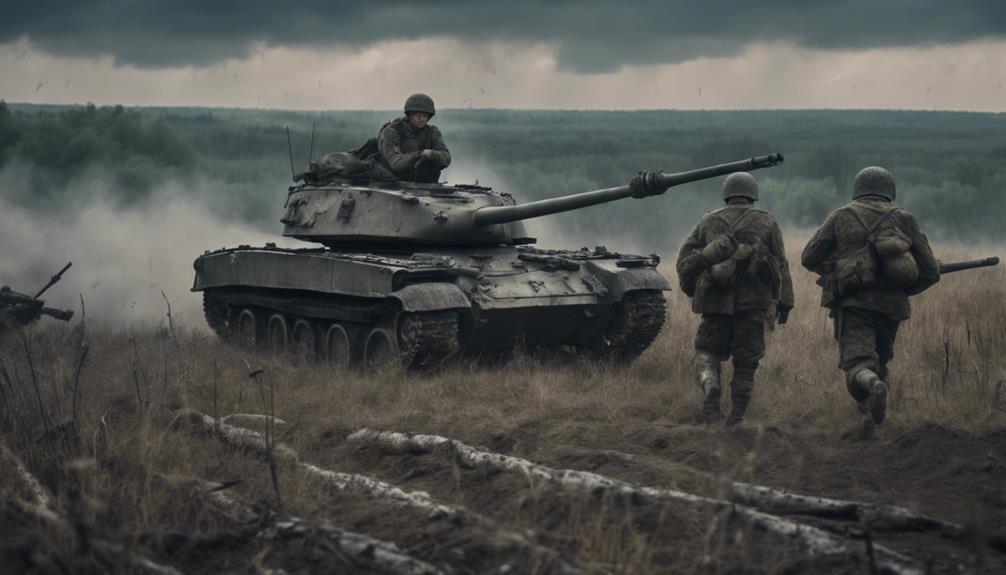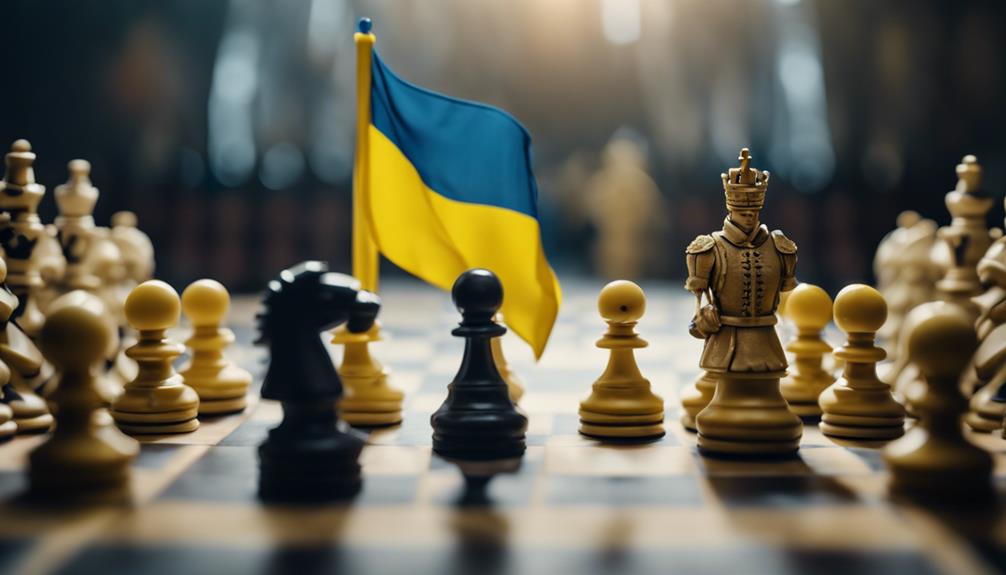
Ukraine's recent military incursion into Russian territory marks a critical juncture not only in the ongoing conflict but also in the broader geopolitical landscape. This bold operation, capturing both strategic locations and Russian military personnel, has placed significant pressure on President Vladimir Putin, challenging his long-standing image of invulnerability and strategic acumen. As the world watches closely, the implications of this move extend beyond immediate military outcomes, potentially altering the power dynamics in Eastern Europe. How Putin responds to this provocation could redefine his leadership and Russia's position on the global stage, raising questions about the future stability of the region.
Ukraine Advances in Kursk

Seizing territory in the Kursk Region for the past nine days, Ukrainian troops have intensified pressure on the Russian leadership. This bold movement by Ukraine not only underscores a strategic advancement but also symbolizes a significant assertion of strength and unity among the Ukrainian forces and their allies.
By successfully penetrating this area, they are not merely altering geopolitical lines but also rallying the global community that supports democratic resilience against aggression. This has undoubtedly bolstered the morale of those advocating for Ukraine's sovereignty and independence.
Furthermore, President Zelensky's ability to secure the capture of 100 Russian soldiers during this operation has been a testament to the tactical proficiency and indomitable spirit of the Ukrainian military. This advance reaffirms their commitment to defending their nation and influencing the broader scope of international diplomacy.
Inside the Russia Incursion
Ukrainian troops have entered Russia with minimal resistance, marking a significant escalation in their military strategy. This bold maneuver has been unfolding for over nine days, with Ukraine's forces capturing significant territories, including the strategic town of Sudzha.
The incursion has visibly shaken the Russian leadership, manifesting the pressure in their delayed military responses and unregained control over the Kursk region. Ukrainian President Zelensky affirmed the capture of 100 Russian soldiers, underscoring a significant blow to Russian forces.
This move not only challenges the military mettle of Russia but also unites Ukrainians in a shared sense of purpose and resilience, reinforcing their national identity and collective resolve against aggression.
Ukraine's Riskiest 2024 Move

The incursion into Russia marks Ukraine's most daring and precarious strategy of 2024. This bold maneuver not only signifies a significant escalation in the conflict but also represents a critical juncture for Ukrainian solidarity and resolve.
By advancing into the Kursk region, Ukrainian forces challenge more than just military boundaries; they test the collective will and endurance of their nation and its allies. This action, while fraught with risk, underscores a shared commitment to resisting aggression and striving for a sovereign future.
It is a stark reminder of the stakes involved and the deep-seated desire among Ukrainians to reclaim control over their destiny. This move, inherently risky, binds the Ukrainian community together in their quest for peace and autonomy.
Putin Reacts to Incursion
In response to the Ukrainian incursion, Russian President Vladimir Putin has suspended peace talks and intensified military efforts to reclaim lost territories. This decisive action underscores a commitment to maintaining national integrity, resonating deeply with many who see his response as a reaffirmation of solidarity and security.
Putin's approach is to rally the nation together, reinforcing the unity and resilience of the Russian people against external pressures. Observers note that this move also serves to strengthen internal support during these turbulent times, creating a common ground for the populace to stand on.
This strategic decision, while assertive, aims at protecting the homeland and ensuring that the collective spirit of the nation remains unbroken amidst challenges.
Future Russian Military Strategies

Assessing potential responses, Russian military strategies are expected to evolve significantly in response to ongoing challenges on their borders. In the wake of recent territorial losses, a recalibration of tactics and strategic aims appears imminent.
Russia may intensify its defense capabilities, focusing on fortified border defenses and advanced surveillance technologies. Enhanced cyber warfare capabilities could also play a pivotal role, aimed at undermining Ukrainian command and control systems.
Moreover, Russia might seek to foster a stronger sense of national unity and resilience among its citizens, emphasizing the need for collective defense against external threats. This shift in military doctrine is likely to reflect a more hybrid approach, combining traditional military strength with modern asymmetric tactics to ensure the security and integrity of Russian territories.
Conclusion
The recent Ukrainian advance into Kursk and the capture of Russian soldiers mark a pivotal escalation in the conflict. This challenges Putin's control and exhibits Zelensky's strategic acumen.
This maneuver not only tests the resilience and unity of Ukrainian forces but also pressures Russian leadership to reassess its military strategies.
As tensions escalate, the international community remains vigilant. Observing the potential shifts in regional stability and the broader implications for global geopolitical dynamics.






